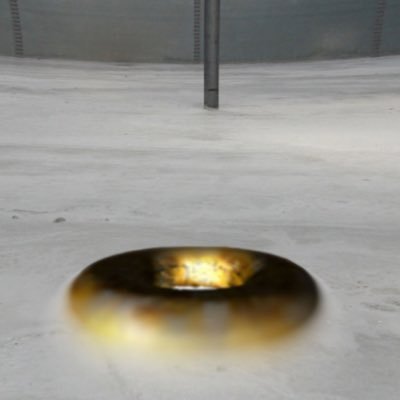結果
| 問題 | No.957 植林 |
| コンテスト | |
| ユーザー |
 glreto glreto
|
| 提出日時 | 2021-03-11 18:39:59 |
| 言語 | C++14 (gcc 15.2.0 + boost 1.89.0) |
| 結果 |
AC
|
| 実行時間 | 586 ms / 2,000 ms |
| コード長 | 3,371 bytes |
| 記録 | |
| コンパイル時間 | 1,278 ms |
| コンパイル使用メモリ | 112,376 KB |
| 実行使用メモリ | 12,800 KB |
| 最終ジャッジ日時 | 2024-10-13 06:28:02 |
| 合計ジャッジ時間 | 15,978 ms |
|
ジャッジサーバーID (参考情報) |
judge3 / judge2 |
(要ログイン)
| ファイルパターン | 結果 |
|---|---|
| sample | AC * 3 |
| other | AC * 45 |
ソースコード
#include <iostream>
#include <vector>
#include<iomanip>
#include<functional>
#include<algorithm>
#include<deque>
#include<math.h>
#include<set>
#include<string>
#include<queue>
#include<complex>
#include<numeric>
#include<stack>
#include<map>
using namespace std;
#define rep(i,n) for(ll i = 0;i<n;i++)
#define req(i,n) for(ll i = 1;i<=n;i++)
#define rrep(i,n) for(int i = n-1;i>=0;i--)
#define ALL(a) a.begin(),a.end()
template<class T> inline bool chmax(T& a, T b) { if (a < b) { a = b; return 1; } return 0; }
template<class T> inline bool chmin(T& a, T b) { if (a > b) { a = b; return 1; } return 0; }
typedef long long ll;
typedef long double ld;
const int MAX = 510000;
const int MOD = 1e9 + 7;
struct Dinic {
private:
struct edge {
int to;
ll cap;
int rev;
bool isrev;
int idx;
};
vector< vector< edge > > graph;
vector< int > min_cost, iter;
bool bfs(int s, int t) {
min_cost.assign(graph.size(), -1);
queue< int > que;
min_cost[s] = 0;
que.push(s);
while (!que.empty() && min_cost[t] == -1) {
int p = que.front();
que.pop();
for (auto& e : graph[p]) {
if (e.cap > 0 && min_cost[e.to] == -1) {
min_cost[e.to] = min_cost[p] + 1;
que.push(e.to);
}
}
}return min_cost[t] != -1;
}
ll dfs(int idx, const int t, ll flow) {
if (idx == t) return flow;
for (int& i = iter[idx]; i < graph[idx].size(); i++) {
edge& e = graph[idx][i];
if (e.cap > 0 && min_cost[idx] < min_cost[e.to]) {
ll d = dfs(e.to, t, min(flow, e.cap));
if (d > 0) {
e.cap -= d;
graph[e.to][e.rev].cap += d;
return d;
}
}
}return 0;
}
public:
Dinic(int V) : graph(V) {}
void add_edge(int from, int to, ll cap, int idx = -1) {
graph[from].push_back({ to, cap, (int)graph[to].size(), false, idx });
graph[to].push_back({ from, 0, (int)graph[from].size() - 1, true, idx });
}
ll max_flow(int s, int t) {
ll flow = 0;
while (bfs(s, t)) {
iter.assign(graph.size(), 0);
ll f = 0;
while ((f = dfs(s, t, 1e9 + 6)) > 0) flow += f;
}return flow;
}void output() {
for (int i = 0; i < graph.size();i++) {
for (auto& e : graph[i]) {
if (e.isrev) continue;
auto& rev_e = graph[e.to][e.rev];
cout << i << "->" << e.to << " (flow: " << rev_e.cap << "/" << e.cap + rev_e.cap << ")" << endl;
}
}
}
}; int dx[4] = { -1,1,0,0 }, dy[4] = { 0,0,1,-1 };
int main() {
int h, w; cin >> h >> w; vector<vector<ll>> G(h, vector<ll>(w));
vector<ll> r(h), c(w); Dinic dn(h + w + 2);
int s = h + w, t = h + w + 1;
rep(i, h) {
ll sum = 0;
rep(j, w) {
cin >> G[i][j]; dn.add_edge(i, j + h, G[i][j]);
sum += G[i][j];
}dn.add_edge(s, i, sum);
}ll ans = 0;
rep(i, h) {
cin >> r[i]; ans += r[i];
dn.add_edge(i, t, r[i]);
}rep(j, w) {
cin >> c[j]; ans += c[j];
dn.add_edge(j + h, t, c[j]);
}cout << ans - dn.max_flow(s, t) << endl;
}
